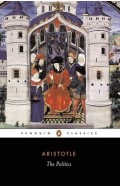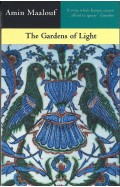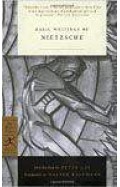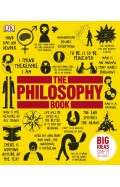- Home
- Books
- Categories
- Non Fiction
- Politics & Current Affairs
- An Anthology of Philosophy in Persia Three Volumes Set
An Anthology of Philosophy in Persia Three Volumes Set
By: Seyyed Hossein Nasr
-
Rs 3,060.00
- Rs 3,600.00
- 15%
You save Rs 540.00.
Due to constant currency fluctuation, prices are subject to change with or without notice.
AN ANTHOLOGY OF PHILOSOPHY IN PERSIA-
(Three Volumes Set)
Yet until today there has not appeared an anthology in any European language that would make available at least a selection of the works in the long tradition of philosophy in Persia for the Western audience. This anthology fills the gap and has been compiled with the goal of better introducing the rich philosophical traditions of Persia to the scholars and students of other cultures and demonstrates that Islamic philosophy is a living tradition in Iran and did not come to an end in the seventh/thirteenth century after Ibn Rushd. Furthermore, it provides a variety of writings to show that the edifices of Persian philosophy are diverse, in both content and format; it makes available in English the actual thought, reasoning, and exposition of most of the major philosophical figures of Persia in matters that are either of general philosophical significance or of interest to an understanding of the philosophical world of the author in question. The materials selected for the anthology are not limited to philosophy in its rationalistic sense only but also in a wider sense to include certain aspects of theological debate, philosophical Sufism, philosophical narratives, and even philosophical hermeneutics excluding, however, pure Sufi texts and other materials that cannot be classified as philosophy in terms of both their content and their format. The contents have been arranged in such a way as to bring about a rapprochement between chronology and philosophical periods, as well as diverse schools of thought. Furthermore, the anthology provides a variety of writings to show that the edifices of Persian philosophy are diverse, in both content and format; it makes available in English the actual thought, reasoning, and exposition of most of the major philosophical figures of Persia in matters that are either of general philosophical significance or of interest to an understanding of the philosophical world of the author in queftion. The first volume is inclusive of philosophical treatises of both pre-Islamic and early Islamic Persia and covers the whole tradition of philosophy in Persia from the time of Zoroaster to Hakim Umar Khayyam. The second volume deals with some major schools of thought in the early history of Islamic Persia that were not treated in the first volume and covers the period that spans from Jabir bin Hayyin to Nash al-Din Tasi. The third volume, Philosophical Theology in the Middle Ages, deals with philosophic theology in the middle ages and beyond, from Mu`tazili and Ash`ari to Shi`i texts that were not treated in the first and second volumes.
AN ANTHOLOGY OF PHILOSOPHY IN PERSIA-
(Three Volumes Set)
Yet until today there has not appeared an anthology in any European language that would make available at least a selection of the works in the long tradition of philosophy in Persia for the Western audience. This anthology fills the gap and has been compiled with the goal of better introducing the rich philosophical traditions of Persia to the scholars and students of other cultures and demonstrates that Islamic philosophy is a living tradition in Iran and did not come to an end in the seventh/thirteenth century after Ibn Rushd. Furthermore, it provides a variety of writings to show that the edifices of Persian philosophy are diverse, in both content and format; it makes available in English the actual thought, reasoning, and exposition of most of the major philosophical figures of Persia in matters that are either of general philosophical significance or of interest to an understanding of the philosophical world of the author in question. The materials selected for the anthology are not limited to philosophy in its rationalistic sense only but also in a wider sense to include certain aspects of theological debate, philosophical Sufism, philosophical narratives, and even philosophical hermeneutics excluding, however, pure Sufi texts and other materials that cannot be classified as philosophy in terms of both their content and their format. The contents have been arranged in such a way as to bring about a rapprochement between chronology and philosophical periods, as well as diverse schools of thought. Furthermore, the anthology provides a variety of writings to show that the edifices of Persian philosophy are diverse, in both content and format; it makes available in English the actual thought, reasoning, and exposition of most of the major philosophical figures of Persia in matters that are either of general philosophical significance or of interest to an understanding of the philosophical world of the author in queftion. The first volume is inclusive of philosophical treatises of both pre-Islamic and early Islamic Persia and covers the whole tradition of philosophy in Persia from the time of Zoroaster to Hakim Umar Khayyam. The second volume deals with some major schools of thought in the early history of Islamic Persia that were not treated in the first volume and covers the period that spans from Jabir bin Hayyin to Nash al-Din Tasi. The third volume, Philosophical Theology in the Middle Ages, deals with philosophic theology in the middle ages and beyond, from Mu`tazili and Ash`ari to Shi`i texts that were not treated in the first and second volumes.
The Heart Of Islam Enduring Values For HumanityNs327
By: Seyyed Hossein Nasr
Rs 1,756.00 Rs 2,195.00 Ex Tax :Rs 1,756.00
The Study Quran: A New Translation and Commentary -- Leather Edition
By: Seyyed Hossein Nasr
Rs 14,395.50 Rs 15,995.00 Ex Tax :Rs 14,395.50
Sadr Al-Din Shirazi and his Trasncendent
By: Seyyed Hossein Nasr
Rs 552.50 Rs 650.00 Ex Tax :Rs 552.50
The Study Quran: A New Translation and Commentary
By: Seyyed Hossein Nasr
Rs 7,596.00 Rs 9,495.00 Ex Tax :Rs 7,596.00
A Young Muslims Guide to the Modern World
By: Seyyed Hossein Nasr
Rs 720.00 Rs 900.00 Ex Tax :Rs 720.00
Zubin Mehta: A Musical Journey (An Authorized Biography)
By: VOID - Bakhtiar K. Dadabhoy
Rs 892.50 Rs 1,050.00 Ex Tax :Rs 892.50
The Quest For Meaning: Developing A Philosophy Of Pluralism
By: Tariq Ramadan
Rs 1,185.75 Rs 1,395.00 Ex Tax :Rs 1,185.75
The Basic Writings of Nietzsche
By: Peter Gay/Sigmund Freud
Rs 3,865.50 Rs 4,295.00 Ex Tax :Rs 3,865.50
No similar books from this author available at the moment.
Soltra the Stone Charmer: Series 2 Book 3 Beast Quest - Paperback
By: Adam Blade
Rs 547.50 Rs 1,095.00 Ex Tax :Rs 547.50
Zubin Mehta: A Musical Journey (An Authorized Biography)
By: VOID - Bakhtiar K. Dadabhoy
Rs 892.50 Rs 1,050.00 Ex Tax :Rs 892.50
The Heart Of Islam Enduring Values For HumanityNs327
By: Seyyed Hossein Nasr
Rs 1,756.00 Rs 2,195.00 Ex Tax :Rs 1,756.00
The Study Quran: A New Translation and Commentary -- Leather Edition
By: Seyyed Hossein Nasr
Rs 14,395.50 Rs 15,995.00 Ex Tax :Rs 14,395.50
Sadr Al-Din Shirazi and his Trasncendent
By: Seyyed Hossein Nasr
Rs 552.50 Rs 650.00 Ex Tax :Rs 552.50
The Study Quran: A New Translation and Commentary
By: Seyyed Hossein Nasr
Rs 7,596.00 Rs 9,495.00 Ex Tax :Rs 7,596.00
A Young Muslims Guide to the Modern World
By: Seyyed Hossein Nasr
Rs 720.00 Rs 900.00 Ex Tax :Rs 720.00













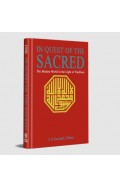
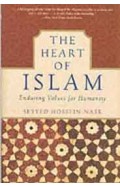

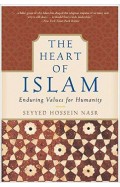
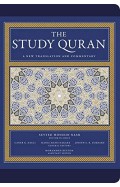


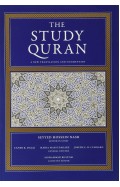

-120x187.jpg?q6)






